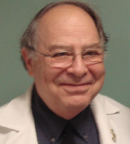
Peter H. Wiernik, MD
The University of Virgina (UVA) Medical Alumni Association has recognized Peter H. Wiernik, MD, as co-recipient of its 2016 Walter Reed Distinguished Achievement Award. Dr. Wiernik received the award along with Charles W. Cummings, MD, former Chair of the Department of Otolaryngology–Head and Neck Surgery at Johns Hopkins University.
The Walter Reed Distinguished Achievement Award recognizes professional accomplishments, outstanding innovation, and exemplary leadership in the field of medicine.
Dr. Wiernik’s Career
Dr. Wiernik is a 1965 graduate of the UVA School of Medicine. Throughout his career, he has conducted groundbreaking clinical leukemia research supported by grants and contracts from the National Cancer Institute (NCI), the Leukemia Society of America, and others.
As Director of the Baltimore Cancer Research Center of the NCI, he was engaged in the clinical development of virtually every new antineoplastic agent from 1967 to 1983. He made major contributions to the development of the anthracyclines in leukemias and in solid tumors and developed key new regimens for treatment of acute myeloid and lymphoid leukemias.
At the Albert Einstein Cancer Center and Montefiore Medical Center in New York from 1983 to 1998, he developed interleukin-2 therapy as the only potentially curable treatment for metastatic renal cell carcinoma. He saved paclitaxel from being discarded by the NCI by designing the pretreatment regimen that prevents its lethal toxicity.
In addition, he convinced the NCI to study the Chinese drug all-trans retinoic acid for treatment of acute promyelocytic leukemia in this country. He successfully treated the first such patient in the United States with this agent and led the first NCI-sponsored trial of this agent in pediatric and adult leukemias. The drug is now a standard component of therapy for this type of leukemia.
He continued his research at Our Lady of Mercy Medical Center and St. Luke’s, Roosevelt, and Beth Israel Hospitals in New York. While at those institutions, he was the first to demonstrate major activity for the immunologic agent lenalidomide (Revlimid) in the treatment of lymphoma. He also described an association between lymphoma and breast cancer. ■

